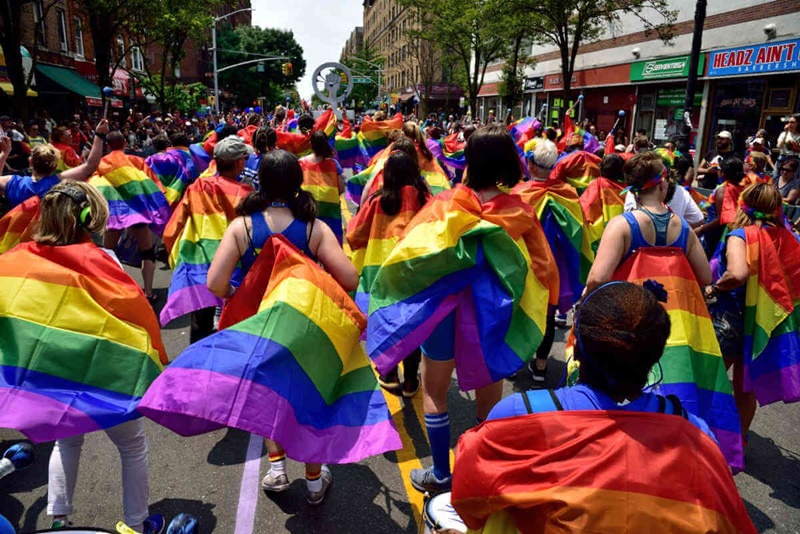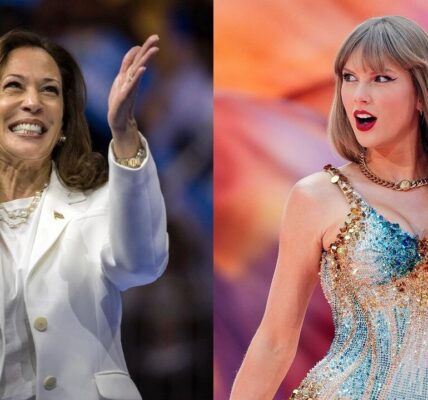In a surprising turn of events, the Pittsburgh Steelers have joined the Kansas City Chiefs in a controversial decision to boycott Pride Nights, an annual celebration of LGBTQ+ communities held by various sports teams. This move has sparked intense debate and reactions from fans, commentators, and activists alike.
The announcement comes amidst growing tension over how professional sports teams should navigate social and political issues. Pride Nights, which typically involve themed events, special merchandise, and various forms of support for LGBTQ+ rights, have become a platform for teams to demonstrate their commitment to diversity and inclusion. The Steelers’ decision to opt out, following the Chiefs’ similar announcement, signals a potential shift in how teams engage with such initiatives.

The Steelers have defended their stance by labeling Pride Nights as “purely woke and satanic.” This characterization has been met with widespread criticism, with many viewing it as a significant step back in the ongoing struggle for LGBTQ+ acceptance and equality. The term “woke” has become a contentious catchphrase in political and cultural debates, often used to describe efforts perceived as excessively progressive or politically correct. By using this term, the Steelers are aligning themselves with a segment of the population that sees LGBTQ+ advocacy as an overreach of social progressivism.
The term “satanic,” in this context, is particularly controversial. It invokes strong religious connotations and suggests that supporting LGBTQ+ rights is not only misguided but morally reprehensible. Critics argue that such language is not only inflammatory but also harmful, perpetuating negative stereotypes and fostering an environment of intolerance.
/cdn.vox-cdn.com/uploads/chorus_image/image/72962878/usa_today_22059640.0.jpg)
The backlash against the Steelers’ decision has been swift and severe. LGBTQ+ advocacy groups, including GLAAD and The Trevor Project, have condemned the move as a regressive step that undermines years of progress toward inclusivity and respect for diverse identities. Fans and commentators have taken to social media to express their disappointment and concern, with some calling for a boycott of Steelers games and merchandise as a form of protest.
The Steelers’ stance is part of a broader trend where sports organizations are increasingly caught in the crossfire of cultural and political debates. As teams and leagues grapple with how to balance corporate social responsibility with their fan base’s diverse views, decisions like the one made by the Steelers and Chiefs highlight the challenges faced in an era where social issues are inextricably linked to sports.
For many, Pride Nights are not just about celebrating LGBTQ+ pride but also about acknowledging and rectifying historical injustices faced by these communities. The decision to boycott such events can be seen as a denial of the struggles and achievements of LGBTQ+ individuals and a reluctance to embrace a more inclusive future.
In response to the criticism, the Steelers have stated that their decision was made in the interest of remaining true to their values and respecting the views of their fan base. They argue that sports should focus on the game itself rather than becoming entangled in socio-political issues. However, this rationale has done little to quell the anger of those who see the move as a refusal to engage with important social issues.

As the debate continues, the broader implications for sports and society remain to be seen. The impact on fan engagement, team morale, and the overall relationship between sports and social advocacy will be closely watched. The Steelers’ and Chiefs’ decisions are likely to influence how other teams and organizations approach similar initiatives in the future, potentially setting a precedent for how sports navigate the intersection of culture, politics, and business.
In summary, the Pittsburgh Steelers’ announcement to boycott Pride Nights, alongside the Kansas City Chiefs, has ignited a contentious debate about the role of sports in social advocacy. The use of provocative language and the rejection of inclusivity initiatives underscore the ongoing conflict between traditional values and progressive social movements within the sports world. As this controversy unfolds, the future of how sports organizations address and engage with LGBTQ+ issues remains uncertain, with potential ramifications for both the industry and its global audience.



